|
Cris Cohen interviews John Pierce of Toto during the band's tour stop in France. They discuss:
- Playing outdoor venues during record heat waves - Songs that were not big in the US but that are huge in Europe - He and Steve Lukather: Living out the dreams they had when they were kids - And more The Toto website: totoofficial.com/ Cris Cohen interviews Barrett Smith of Steep Canyon Rangers. They discuss: - What it is like to join this band as a new member - How getting his Master of Arts degree in Counseling has altered the way he communicates in everyday life and as a musician - Really committing himself to the bass after joining this band - The challenges in covering James Taylor's "Sweet Baby James" - And more You can also read the transcript. The Steep Canyon Rangers website: www.steepcanyon.com Cris Cohen interviews Jason Adamo. They discuss: - The creation of the Brett Young song “Beautiful Believer” - His New York subway singing education - His song "Raleigh Nights" - The allusions to his mother in both the songs and the artwork of his album "Looking Glass" - And more Jason's website: www.jasonadamo.com/ Thanks to X Over Productions LLC for letting us film in their studio. Cris Cohen interviews country artist Paige King Johnson. They discuss: - That personal boundry you do not cross as a songwriter - Being mentored by Pam Tillis - Lessons learned from playing 150+ shows a year - Her album "Honky Tonk Heart" - Serving as the musical ambassador for the NC Department of Agriculture's "Got To Be NC" campaign - And more Cris Cohen interviews Tom Johnston and Pat Simmons of The Doobie Brothers. They discuss:
- Their new album, "Liberte" - Their just released band autobiography, "Long Train Runnin'" - The time Tom traded a guitar pick for a policeman's badge - The different approach they took to songwriting on this album - And more You can read the transcript Part 2 of Cris Cohen's interview with Michael McDermott of Joan Jett & The Blackhearts. They discuss:
- As a drummer, finding your place in a song - Charlie Watts vs. Ringo Starr - Surviving and thriving in an environment as unstable as the music industry - And more Part 1 of my interview with Michael McDermott of Joan Jett and the Blackhearts is now up! We discussed:
- The new acoustic album, "Changeup" - Delivering the drumming of classic songs like "Crimson and Clover" and "Bad Reputation" with just acoustic percussion - What defines punk music - And more I hope to release Part 2 next week. Cris Cohen interviews Joseph Terrell of Mipso. They discuss:
- The band's 2022 Cover Series - Leaning into being a band from the Raleigh-Durham-Chapel Hill area of North Carolina - Playing a toy piano - The nice but painful review they received early on - A service where the time is announced by Bob Dylan - And more Cris Cohen interviews Doug MacMillan of The Connells. They discuss:
- The band's new album, "Steadman's Wake." - Their 20-year gap in between albums - Being the lead singer but (often) not the songwriter - And more Cris Cohen interviews bassist John Pierce, longtime member of Huey Lewis & The News and now a member of Toto. They discuss:
- Prepping for the Toto tour - The influence of the bass - Adapting to diverse artists - And more You can also read the transcript of the interview Cris Cohen interviews singer / songwriter John Hall. Best known for his work with the band Orleans, John has also written songs for his solo projects as well as for / with Janis Joplin, Bonnie Raitt, Chet Atkins, and others. In a very different career move for a musician, John was elected to the US House of Representatives, serving from 2006 to 2010. They discuss:
- His new album, "Reclaiming My Time" - "Every song is a message" - Co-writing and playing guitar with Steve Wariner - Recording with people in remote locations during the pandemic - His smooth approach to the guitar - And more From the archives. Recorded November 1998.
Cris Cohen interviews Roger McGuinn. They discuss: - His album "Live From Mars" - "King of the Hill", the duet he recorded with Tom Petty - His love of folk music - Learning to perform as a solo artist - And more Cris Cohen interviews drummer Anthony "Tiny" Biuso. They discuss: - Playing with bassist Greg Hanna in The Dickies - Years of hazing in TSOL - Controlled chaos - Wedding band training - “It’s all arrows in the quiver.” - How a road warrior stays productive during an epidemic lockdown - “Wear your scars as a badge of honor.” - “You don’t have to be famous to have a great life in music.”
Cris Cohen interviews Guitar Gabby of the TxLips Band. (The occasional squeak sounds you hear are from her dog playing with its chew toy.) They discuss: - Why her band role includes the title of “lawyer” - Their description as an “all women touring collective” - The TxLips album “Prison of Life” - Using music to both vent and connect with others - Her solo album “Musicology” - Being influenced by Joe Satriani and Steve Vai - Studying philosophy - The importance of being yourself - Developing a brand without losing sight of yourself Never miss a full interview or an excerpt. Subscribe to the newsletter Hire Bands To Fans to develop custom content for your band From the archives, an interview I did with Andy Summers of The Police back in 1999. We discussed: - His solo album "Green Chimneys: The Music of Thelonious Monk" - Playing songs on the guitar that were created for the piano - Internalizing the Thelonious Monk repertoire - Why he mixed the album twice - Getting Sting to sing on “Round Midnight” - Jazz guitar versus rock guitar Listen to the interview Read the interview -- Never miss a full interview or an excerpt. Subscribe to the newsletter Hire Bands To Fans to develop custom content for your band or business ListenReadCris Cohen: Regarding your album “Green Chimneys: The Music of Thelonious Monk,” what are the challenges in playing pieces on the guitar that were created for the piano?
Andy Summers: Well, that's a good question. I guess the challenge is to make it sound authentic on the guitar, which specifically for me involved things like changing keys, which of course some people think is sacrilegious. I think that is a little purist. For example, a piece like “Round Midnight” was composed in the key of E flat minor, which is difficult on the... not difficult, but it doesn't give you a lot on the guitar in terms of the guitar voices. If you move it up one fret or half a step, you get into E minor, which is, of course, basically the key the guitar is in. And you’ve got a lot of open strings, a lot of very interesting dissonances and open voicings that you wouldn't get in E flat minor. So it starts to really sound like a guitar piece then. It can sound a lot more beautiful, actually. There's a lot of stuff you can do, which is not available in E flat minor. In fact, this is a slightly weird one. On “Round Midnight” what I did was to play it as if the guitar was in the position of the open E minor, but in fact I de-tuned the whole guitar a half step. So in fact, it's authentically in E flat minor but made available on the guitar with the open string. I don't know if you can follow that. Cris Cohen: Yeah. It's almost like you're tricking yourself. Andy Summers: I wanted it to have the dissonant voicings available to me, but that meant to achieve that, I played it as if in E minor, but in fact with the guitar tuned down. Things like that. I would change keys slightly, find ways to play the heads, or the actual compositions, with open strings, slides, slurs, harmonics, hammers… to make it sound distinctive. Rather than just playing everything fretted and just like I'm just playing the tune without really thinking about it in terms of the guitar itself. So, I was pretty specific about that. Cris Cohen: Just in switching from the main instrument, from a piano to a guitar, you are obviously putting your own spin on everything. Were there any people who were nervous about the idea of just even doing that, of taking away the piano as the backbone? Andy Summers: To me, the first consideration is, "Right. Okay. There's no piano on the track." It seemed the most obvious move to me because it's my record, Andy Summers. It's like, "Okay. I'm not putting any piano on this record because what's the point?" There's organ on it, but it moves away. It's distinct enough and un-Monk-like enough that it was okay as a texture. But I mean, why would you want to use piano on a Thelonious Monk record unless you were just another pianist doing Monk? For me, I wanted to make it very fresh and have the Monk sound, as far as I could achieve it, in a way that it hadn't been heard before. But I mean, all these things were in my head. I was thinking about them. For instance, I tried to do a left-handed piano on “Bemsha Swing” with the dobro, because it's got more like a piano sound. And try and think about Monk's passable, off-the-wall approaches to playing solos on some of the solo aspects. To a degree, you're self-conscious about it. I'm thinking about Monk. I've got in my head (that) I want to be respectful and pay homage. But at the same time, you want to have your own voice in there. So, it's a lot of things. And some of it is just playing it and thinking back and wondering if you've got it or not. And maybe not listening to it for a while and then come back, listen to what you did, and seeing if it sounds authentic. Doing a record like this is a real challenge in a way. And in some ways harder than just doing your own stuff. Because a lot of people have done Monk. And you're trying to present it differently and have it come off as, not just a failed attempt, but to have spirit. It's easier and more difficult, both at the same time. Internalizing the Monk Repertoire Cris Cohen: And it sounds like with this, more than traditional albums, a lot of planning had to go into it before you even began the recording process, mapping things out? Andy Summers: Well, there's a lot of preparation in terms of internalizing the Monk music, or the Monk repertoire. There were certain things I did. You can prepare, but of course, you're playing jazz, so I think it's more like internal preparation. And then you've got to try and be spontaneous. But hopefully out of all that internal preparation, the right thing is going to emerge. On that, I stopped listening to anything else for a couple of months before I made this record. I only listened to Monk. I stopped listening to any other kind of music. I had also gone through the whole repertoire, which was about 90 pieces, and sorted them into categories, decided which ones had been played too much, listened to some undiscovered gems I could bring out, played most of them on the guitar. I worked right the way through it, so I was pretty much into it. By the time it got around to recording, I was very familiar with it and I'd saturated with it. I felt that I could be in the right place to play it. Cris Cohen: Was it then difficult getting out of that mindset once you had finished the project? Andy Summers: No, it was fine. I'm not totally out of it really, because I'm out now playing it. It's all I'm playing because the record's out. So to back up the whole event, I play my own older material as well, but I'm currently playing a lot of the pieces off the album. It took me a while to put this whole record together. It was a rigorous mental discipline, where I just stayed with the program. And in some ways, at the end of all that, once the record was done, it was nice to let go of it a bit and return to some of the earlier stuff I was playing. And it all seemed very easy after that. Sound Quality Cris Cohen: Now, one of the first things you notice when comparing Monk's recordings to yours is the difference in the quality of sound, quite obviously because you had much different recording materials available to you than he did. Was there ever any concern about making the songs too clean or too crisp? Andy Summers: Well, it's a good thought. Yeah, I understood what you were saying, but I guess the way I almost visualized it was that everything's just going to sound much clearer and fresh because of what we can bring to recordings now, the actual recording quality. No, I saw that as a plus actually. Cris Cohen: So it's like when you pick up an older vinyl album and you think, "If only he had the kind of recording equipment I have access to, how much better we could have heard him." Andy Summers: And also, personally, I like recordings to be… I mean, this is always just something I have to go through with every engineer. Because engineers will tend to separate everything out and make them very clean, because that's what they do. And I always try and keep things a little rough, a little murky sounding, punchier. I don't like things to be too audiophile, as it were, because I think it tends to take away from the richness of the music sometimes. It's a hard thing to talk about it, because that's when you're in the mixing mode. In fact, I mixed this record twice. First time, we were pretty exhausted. It was just before Christmas. We both went off for a couple of weeks. I came back and I knew that (the mixes) could be better. I think we both returned and felt at the same place. We virtually remixed the whole album, because it was like we had a better take on it. We were fresher and the second time we got it right, I think. It definitely came out a lot stronger. Cris Cohen: And then not only with this album, but with your other work, has that been a struggle trying to maintain the warmth to the sound in and amongst all this technology and advancements? Andy Summers: Yeah. It's always something that I have to deal with, telling them, "Not too clean. No, it's too clean. It's too much reverb. Everything sounds too separated. Make it sound more like a band." That's always a personal aesthetic. And we’ve got all of this digital technology. I have to always fight to keep it more analog sounding. But I work with a brilliant engineer who is very hip to all that stuff. And it was interesting doing this one, because it was the first time I ever recorded straight to disc, with the new system, the RADAR system. But it sounds fantastic. And it's so easy to use now. It gives you so much creative edge as you're going along. Cris Cohen: So it'll probably be the method you use to record in the future? Andy Summers: Oh, I think so. Yeah. It's so fast. Waiting for tape spool to wind back now is like, "Oh my God. I can't be bothered." With the RADAR system, you just press the button and you're straight back to where you were. It's a real time saver. But it sounds great too. Sting Cris Cohen: Now earlier you brought up the tune “Round Midnight.” Why did you have Sting do the vocals on that track? Andy Summers: There's the obvious reason that everyone likes to see him and I connected on something. But also, he does sing this with that husky, non-vibrato quality he's got that I thought was perfect for this. So it's just a nice thing that everybody would like. But the truth is, he can sing this stuff really well. So, it wasn't difficult to put together. I called and asked if he was interested in doing it. He was very responsive. It was on me then to construct the backing track that he could put the vocal on. I did (that) and then flew to Italy, where he was living, to get him on it. It was a good experience. Jazz vs Rock Cris Cohen: Oh, very cool. And just a few weeks ago I interviewed Bill Evans, who… Andy Summers: Oh, Bill Evans the saxophone player? Great guy. Cris Cohen: I asked him about you. He said that you are a musician with vision, that you look at your study of the guitar as a lifelong learning process. Now the question I have is: How does learning via jazz differ from learning via rock? Andy Summers: How does it differ? Boy, how do you answer that question? Well, I mean, you're specifically learning different things. You're learning a different rhythmic feel. The feel of a jazz solo is very different than a rock solo. Let's see how much of this I can articulate. When you play rock solos, the music is much more strict. You play in eighth notes that are much stricter and on the beat than in jazz. Jazz is a lot sexier. The accents come in different places. It's a very different feel. But it's the emphasis of the accents. Rock, compared to jazz improvisation -- and this is a real generalization -- it's a lot stiffer. Jazz is much looser and sexier. But in musical terms, it's the placement of the accents. I mean, these are generalizations, but that's what you would be working on. And you would take a long time to really get the feel of where a solo goes. But then it's much, much deeper than that even, because you're talking about a major area here. How do you construct a great solo? Because in jazz it should be an unfolding, it should be a narrative. It should be an unfolding of a series of ideas that goes on a little journey. Rock can be like that, but less so in rock. But in a jazz solo, you would tend to build it and you build on the ideas that went before. You play in motifs, play inside and outside of the harmony. It's very rich and deep. It's life. Rock solos tend to be in the middle of a song where someone's singing and… Cris Cohen: Yeah, and more abrasive. Andy Summers: Oh yeah. And obviously much more abrasive. It's a whole different feel. But if you're going to play good jazz on a guitar, then you've got to really study harmony in depth. It's a lifetime study. You never finish. You master it, but you never master it, really. You never get all of it, no matter how many years you put in. Rock is obviously a lot simpler harmonically. You don't need quite the depth of harmony. Though personally, I think the more you know, the more you bring to any field, and then you shape it. Certainly, in The Police, I was just very loaded with jazz and classical studies, but I was playing rock. But I was able to open up the rock parameters by bringing these other elements in. It just made it interesting for people. Not esoteric. Because the main thing is the rhythm… the drums were still there playing in a rock style. And I was able to float all these different things in and out that weren't in the normal, conventional rock style at the time. I think jazz -- I hate to make these comparisons because they're sort of odious -- I think it's the deepest study. It is more difficult to play it really well at the right depth or the right level. You've got to put in a great deal of time. It's a deep, intellectual, lifetime study. The problem with rock, for me, is that I get bored with it. I get bored with the rhythms, particularly. The drumming gets boring for me because it's not loose enough. I find it very wooden and stiff compared to jazz. Cris Cohen: Jazz has a more organic feel. Andy Summers: Yeah, much more organic. It's looser. It’s much more with the body. I find it a lot sexier. Rock is very stiff to me. Improvisation Cris Cohen: Last fall, I interviewed Billy Cobham and he described his playing in jazz and drumming as: He always thinks of it as he's writing a letter to someone. And so that seems to be what you were talking about. Andy Summers: It is. It's a narrative, if it comes from the right place. I go out now and I usually play with the trio. I stand there for a couple of hours on the stage and I play these beautiful tunes, and then I improvise. Basically, improvisation is on-the-spot composition. But playing jazz like that and trying to play deep, it's a real mirror of where you are at the time. What's in your head, your physicality, the room, how you feel about your life… it really mirrors all these things. And that's what I love about it. There's a truth to it. That when you really just stand there and you're just trying to play naked in the space, then it's like you're really attaching to sort of a life process. It's some hard stuff to talk about. It sounds mystical, which is what it is in a way. Words cannot describe it. Except when it's happening, at the right level, you connect to something. I don’t want to get a bit religious, but it is sort of talking to a higher power or something. You do get connected in a way that is deep and hard to talk about, but is very satisfying. Like when you connect with a score. It doesn't happen every time. But in the really great moments, when it's happening like that, it's a wonderful thing. Cris Cohen: And also I think for the listener too, especially at a live performance. Andy Summers: Yeah. People know. I think particularly the audiences in this country, which are very musical, people connect with it. They know when you're there. It's wonderful. His Distinctive Guitar Sound Cris Cohen: Another thing that Bill Evans said -- and which a lot of people have said -- is that you have one of the most distinctive guitar sounds in music. Is this ever a burden? Do you ever find yourself unconsciously… Andy Summers: That's a good question. Yeah. And probably a lot of people mean The Police by that. Well, it's very nice, but you don't even want to get stuck with that, really. You want to be able to keep moving on as much as you can. But I don't know. I think you just go on and you keep doing what you're doing. You can reshape it. But I think it can be a burden if people mean, "Well, why don't you just play just like you did in The Police?" Well, that was a long time ago now. I did that. I've gone to somewhere else with it, which I think for me right now is a lot more interesting. But I hope that, whatever it is, it's your own touch and it comes out anyway. I mean, I think I've still got that. Cris Cohen interviews Kevin Martin of Candlebox. They discuss: - Their new song “Let Me Down Easy” - Co-writing with Pete Cornell - Their cover of “For What It’s Worth” - “There is darkness in enlightenment” - Persistence - How initially being a drummer influenced his songwriting - Being a reluctant singer - Breadmaking - And more e-Book
TextCo-Writing with Pete Cornell Cris Cohen: With the new song, “Let Me Down Easy,” you co-wrote that one with Pete Cornell. What do you like about him as a songwriter that you sought him out to co-write? Kevin Martin: Well, I knew Pete obviously back in the eighties, when I moved to Seattle. I moved there in 1984. I met him a couple of times through shows and whatnot. Big fan of the band he had called Inflatable Soule. We had a ton of friends in common. We never played shows together, but I always admired him. I mean, he was so different than Chris (his brother). Being that he was a few years older, I think his songwriting was a little more of like the classic approach to songwriting. Whereas Chris just seemed to be so asymmetrical with his songwriting. Years and years go by. Candlebox blows up and does its thing. We get together in 2018 to play a couple of reunion shows in celebration of the 25th anniversary of the debut album. And Pete came to the show with his wife, Amy Decker, who is my manager. We just started chatting. I hadn't seen him in so long. I was like, “Man, first of all I am so sorry about the loss of Chris and the loss to your family. I can't imagine what you're going through.” He's like, “Life is tough, but you have to move on. You have to find your footing again and try and live.” It just got me thinking. I was like, “You know, I'm doing a new record. I would love to co-write with you on something. I was a huge fan back in the day. Maybe this is kind of serendipitous that we are meeting again, after some 20 odd years, and I'm about to make a record.” So, I told him the style of music that I was going for. I wanted something swampy, bluesy, dark. I even said to him, “Maybe I'm exorcising some demons that we both have.” He was like, “Let me think about it. I'll send you something.” And not long after, he sent me this track on acoustic (guitar). And I was just so struck by it immediately. It had the same kind of energy that it has now, when we recorded it. To me, that's always a sign of a great song is if you can play it on an acoustic and it feels like a recorded, full band version of a song. That always makes me kind of feel like you're on to something and you should probably stick with it. So, I called him up and I said, “Listen, man, I'm going to track this with the guys. I would love to have your input on it, because we wrote it and I don't want to push something out there without your approval.” We tracked it in preproduction. I sent it to him. He said, “Man, this is exactly what I was hearing. Let's go for it.” I wrote the lyrics to the track in the studio when I was recording the vocals, which was January of this year (2020). I didn't have lyrics for it, but I knew what I was going to be singing about. I knew what I wanted to talk about in the song. But I tend to do that. I don't really write lyrics until the music totally speaks to me. I'm not one of those guys who walks around with books and books of lyrics. I'm not that person. I'm more of an off-the-cuff kind of a guy. So, really, it just kind of stemmed from that meeting, reconnecting back in 2018 in Seattle. To be honest with you, I wasn't even ready to make a record. I was writing songs, but I just really wasn't in the mindset to do it. And this song, when he sent it to me, just kind of sparked something in me. It was really the catalyst of making the record. Cris Cohen: And how are you guys different as songwriters? How do you guys complement each other as songwriters? Where does he stop and you begin in this process? Kevin Martin: I don't really know, to be honest with you. I think when Pete sent me the song, he had a bit of a melody that he was singing, but he didn't have lyrics either. When I spoke to him, I said, “How do you write lyrically?” He said, “I usually let the song kind of dictate what to say.” And that's exactly how I do it. So, I think we're probably very similar, especially in this day and age, 20 to 30 years later. We don't really overthink it. Of course, you know, we're not writing “Sgt. Pepper’s” or anything like that. It's not like we have some enormous amount of pressure on us to produce something groundbreaking or reinventing the wheel. I think that our styles accent one another, much like ketchup to french fries. We’re not that different. Although, he's a far more prolific writer than I am. I know that he's been churning out songs for the last 30 years, two to three songs a week. I don't know what his catalog consists of. But I did say to him, “I love this song so much. I would like to write two or three more with you.” The record was supposed to come out this past August. I'm kind of happy now that it hasn't, because it might give me the opportunity to write one or two more with him, get them recorded, and throw them on the album. Because I like this song so much. It would be interesting to see if we can do that. Cris Cohen: That's one thing I was wondering. Because I thought you guys had finished the bulk of the recording as of January… Kevin Martin: Yeah. All done. Cris Cohen: And then, no one thought that the world could get stranger and yet, in 2020 it did. And you've pushed back the release of “Wolves.” I was wondering, how do you -- guys who tend to filter your thoughts and the atmosphere that you're dealing with through your music -- how do you not just keep writing through all of this insanity and then get the urge to expand to the album? Take advantage of… Kevin Martin: …the time off. Yeah. That's what we're doing and what we're not doing. We're doing these cover songs. We did “For What It's Worth” by Buffalo Springfield. Every single one of the songs that we're doing is kind of a reflection of the times, what we're dealing with. Not only the pandemic, but the disenchantment of the world and society in general, this lack of empathy that I think everybody has right now. So we're doing “One” by U2, “Running On Empty” by Jackson Browne, “Won’t Back Down” by Tom Petty, “Under Pressure” by Queen and David Bowie, “Ventilator Blues” by the Rolling Stones, which is killer. The thing is, that's kind of sidetracked writing more for the record. We have two guys that are on the East Coast and three guys that are on a West Coast. We're having to do it in our own individual studios. Not all of us are wizzes when it comes to recording. So, there's that learning curve. We tried to figure out how to make this work, perhaps for the benefit of not only ourselves and enjoying the songs, but for our fans. Because we want to release this 12-song compilation of cover songs as a gift with “Wolves.” We can't sell it, because we don't own the rights to the songs and there are mechanical (licenses) that go along with it. So, we would have to give it away. That’s really taken up a lot of our time right now, finishing these songs. Although Pete did just text me last week and said he's got two tracks for me to sing to. Then I've got this other project I'm doing with Don Miggs, from Miggs, which we are tentatively calling “Future Trash,” which is an extension of our real influences and inspirations musically. So, I'm keeping myself busy with that. But you know, I think that if Pete sends me these two tracks, if they work correctly for the rest of the record, I'll get in the studio with Robin (Diaz – drummer) and Adam (Kurry – bass) and we'll track it. I'll send them off to Brian (Quinn – guitarist) and Island (Styles – guitarist) on the East Coast, have them do the guitar parts. Then we'll send those tracks to Carson and Grant, who mixed the record for us. Cris Cohen: I was watching the video of your version of “For What It's Worth” by Buffalo Springfield. It seems to me, there's covering a song for a show, where it's fine if you just want to do it as is, because it's just the energy of the moment. But when you cover a song to record it, usually it's about, “Okay, I don't want to do it note for note, because there's no point. The original already got that perfectly.” And so it's like, “I'm going to put my own spin on this particular tune, my own small re-interpretation.” With “For What It's Worth,” what was your perspective going into that, with how you guys were going to tackle it? Kevin Martin: Well, I talked to Island about it, the guitar player that's always to my right onstage. I said, “You know, if we're going to tackle this, I would like to do it in the vein of Radiohead, maybe Fake Plastic Trees, something that's a little bit more androgynous and open.” And Island is so good when I give him those kinds of directions or that kind of influence. He can do it in a matter of minutes. I sent him the scratch vocal track and then he wrote the song around it. And that was it. Darkness in Enlightenment Cris Cohen: Diving back into “Let Me Down Easy,” I saw in this other interview, when you were talking about this song, you had this great line where you said, “There is darkness in enlightenment.” 1) I thought that could be a song in its own right. 2) Not to go too heavy, but it's such an interesting turn of phrase. With darkness and enlightenment, do you think it's a necessary balance? Or is it because there's a flaw in the system? Kevin Martin: I think there's a flaw in the system. But it could be that it's a necessary balance as well. We're all sinners. And those of us who choose to throw stones, who live in glass houses, or that holier than thou attitude, until you're walking on water and turning water into wine, you really should keep your mouth shut. You're only here for a short period of time and it's just one of those things. I think that people get so distracted by this kind of belief that there's a God above and He's going to fix everything for us. And I mean, listen, I've been writing about this since the debut album. I was raised Roman Catholic, so I was an altar boy for several years. I've seen it all. And luckily I was one of the Catholic kids that wasn't oppressed by a priest. I think that there's just so much darkness out there. And these people that go to church to try and find this element of freedom or direction, they're just missing the point most of the time. I think you can find that within yourself. And I don't understand why a megachurch pastor has to have $30M, $40M, when half of his flock can't afford to eat. And that's why I'm saying there's darkness in enlightenment. Because you're supposed to be learning something about yourself going here. And then here's this person that's telling you what you're supposed to be doing, and they're not doing any of it. One example is Jerry Falwell Jr. and what just happened with him. So I think there's a massive flaw. And it's so simple. I think that flaw is that we're human. And the saying is that God granted us free will. That's the worst thing He could have given us, because we abuse that freedom on an hourly basis. Cris Cohen: I guess some people would argue that what they are offering isn't actual enlightenment, it's packaged enlightenment, the kind that really should just sit on a virtual shelf in an Amazon kind of store. It's about marketing and sales. Kevin Martin: Yeah. Persistence Cris Cohen: But I understand, especially in these times, the desperation that comes with looking for something and preying on people's desperation. And along those lines, there is this particular lyric that I loved in the song where it says, "I can't find the missing pages from my life," which, everyone I talk to, that pretty much sums up their experience with 2020. There's this feeling… they were headed for stuff. They had plans for stuff. There were some good things on the horizon. And then it all got ripped away. And the band Candlebox itself has had its own ups and downs, but you've continued to endure. From your perspective as a musician, what's your secret to persistence? Because I think that's key for a lot of people right now. Kevin Martin: It's financial (laughs). No. I think the key to my persistence really is just that I love what I do. When I was a kid, this was all I could dream about. I mean, what sold it for me was my first KISS record. It's seeing these larger-than-life creatures. I was five years old and I was like, "What is this? This is the most amazing thing." It's like you're getting your first comic book or something. So, I knew that it's what I always wanted to do. And I also know that I have something to say. Whether or not it's right or wrong, it's certainly just my opinion. But I have found that certain things that I speak about resonate with my flock, if you will. I feel sometimes I am a bit preachy, but I think that that comes from being raised by a father who was born in 1922 and stormed Omaha Beach on June 6th of 1944, and married my mother after six months in 1959. And they were married for 45 years until my father passed away at the ripe old age of 81. My dad spoke to me every day about life and the importance of relationships, and respect, caring, understanding, empathy, and all these great things. So, I feel that, maybe what my father taught me, I'm passing on to my extended family. That's kind of what keeps me motivated. And the fact that I absolutely love what I do. The last two shows we played this year before everything shut down were Florida, at this place called the Culture Room. They were two of the most enjoyable concerts I've ever played. (One of which because I had taken a little bit of hallucinogens. I had taken some mushrooms in chocolate.) I was like, “Man, this is just the greatest. I mean, who gets to do this? I get to do this every single day. It's just brilliant. I love it.” And I'm thankful that people allow me to do this and have allowed me to do this for going on 30 years now. Cris Cohen: But also, I think it's cool that you, and obviously other bands, figured out a way that, even though you guys are spread across the country, you could record these cover tunes. Because the musicians / the music world has just gotten the crap kicked out of it by all measures. And that's another example of the persistence of, where some people are kind of holed up Hobbit style, you guys are still pushing. “Okay, how can we do this without endangering anyone, but still keep pushing ahead for our craft?” And is that the same drive that was kind of instilled in you at a young age? Kevin Martin: I don't really know. It's a good question. Possibly. I think I would say it's more so the fact that Island and Brian are very, very prolific musically. And they really kind of push me. You mentioned earlier the ups and downs of Candlebox. I've gone through three drummers, and countless guitar players, and several bass players. I'm the one constant in the band. But those that surround me now and support me musically are the most prolific, talented guys I could ever hope to be playing with. So, I think they're the ones that kind of keep me relevant to the music. They're always sending me stuff. And this whole cover song thing was basically Island's idea… Island’s and Brian’s. They were like, “We should do something with ‘For What It's Worth.’” And then I was like, “Well, let's do a whole EP.” And then that grew into, “Let's put it out and give it to everybody.” I guess maybe what I'm saying (in a roundabout sort of way) is I'm thankful that these musicians that I play with keep me grounded and directed. A Drummer at Heart Cris Cohen: I'm always fascinated by singers who were initially drummers. And besides our friend Fred LeBlanc of Cowboy Mouth, I've interviewed John Easdale from Dramarama. He's a drummer who became a singer. What advantage do you think that gave you as a singer, as a songwriter, to come from a drumming background? Kevin Martin: Probably the understanding of the song, and the structure of the song, and the ins and outs. The beauty of drummers -- John Bonham, Peter Criss, Neil Peart -- those kinds of guys are all musicians that I kind of aspire to play like, just because they had such interesting ways to get in and out of parts. And of course, Neil Peart being a lyricist as well was... When I learned that as I got older, it was just mind bending. “This guy’s not only behind the kit doing all of the shit he's doing, but he's also writing all the fucking lyrics?!” I guess that's what I learned from these guys, that I continue to take with me to this day. When we write songs, I'm always writing around the beat. With the perfect example of this track “Let Me Down Easy.” I knew that I wanted the song to feel like a Black Rebel Motorcycle Club song. That's what I wanted it to feel like, because I love that band. And I think that right now, save for the Black Keys, nobody is really doing that kind of music. So I love, love, love Black Rebel Motorcycle Club. I pulled from that when I spoke to the guys about it. I said, "This is the drum beat I'm looking for. It has to feel like you've just sold your soul and now you're running down the train tracks away from the devil, trying to get away." And that's, I guess, what I've learned as a musician: That I can utilize that energy as a singer and pull it from that energy of the drummer. And that in turn allows me to sing around the rhythms and move in and out of patterns and kind of play both parts. Cris Cohen: And then, when you're communicating with your drummers, are you actually using terminology like paradiddles and things like that? Or how often is it you getting behind the kit and saying, "All right. This is kind of what I'm looking for?" Kevin Martin: Generally, I'll sit down behind the kit and knock it out. I mean, even on this, Dave Krusen, when we were tracking this song, he's like, "Well, why don't you play the part?" And I was like, "No, man. You're a far better drummer than I could ever hope to be.” And that's what I love about Dave. And that's why he's played with me for so long; it's that he's exactly who I'm looking for in a musician. And of course, Robin is the same when Robin plays with me, when Dave's not around. I look for those drummers that have that kind of energy. I can certainly talk in the drummer's linguistics. But most of the time I just sit down and say, "This is what I'm looking for." And I do it a lot at sound checks. I'll tell Carlos, our sound guy, "Hey, record this for a minute because I'm going to use it at a later date." And then he'll record whatever drum beat I'm playing. I have a collection of MP3s that are just drum parts. I'll send them to the guys and say, "Listen, I want to write something around this." And that's (the album) “Disappearing in Airports,” essentially. I'd say 90% of that album was written around MP3s of drum parts. Because that's just how I think. I know what I want to work off of. And if I have it in front of me, then I can work off of it. Cris Cohen: So, that's your foundation. Kevin Martin: 100%. Yeah. Cris Cohen: Reading through several past interviews, the one thing that kept coming up again and again was the term “reluctant lead singer.” First off, how does one balance or jostle the idea of A) being reluctant and hesitant to move in this direction, but B) also wanting to improve and evolve? It seems like those two might be wrestling different sides of you. How do you balance that or get them to a peace accord, so to speak? Kevin Martin: Well, I'm certainly insecure. I mean, I think to be a lead singer you have to be insecure, because you're looking for that instant gratification that you're good, you're talented, people like you. I’ve got to be honest with you, man. When I sing on a record or when I sing live, it's really about pushing myself as far as I can go, because I love it. I only love it those two hours I'm on stage. But during those same two hours that I'm on stage, my mind is playing all sorts of tricks on me. “That note was wrong. You didn't get it right this time. You missed that pattern. You missed this lyric. You switched the lyrics up.” I've stopped “Far Behind” live several times because I fuck up the first verse. Being lost in that game can make it difficult to remember where you're at. Cris Cohen: What do you do to knock yourself out of that headspace? Kevin Martin: I think a lot of times it's really taking a deep breath. You have to do that sometimes when you're... For me, it's about getting on stage. That's the hardest part. (I take) a nice, deep, long breath, let it out slowly, and say, "Okay. Here we go." Because the way I sing, I'm somewhat acrobatic with my voice. And there are times when I'm supposed to hit that Robert Plant note that I feel mentally I can't hit. I've got to remember how I did it. That happens in two or three songs during the set. I look at the set list and I'm like, "Oh shit. Here it comes. I'm going to have to hit that note. How did I do it?" And obviously I don't know if it's ever not happened for me unless I had laryngitis, or something. But your mind, it's a tricky, tricky thing. And like I said, I'm super insecure, man. So, that's why I guess I'm a much better singer than I am a drummer. Cris Cohen: From a listener’s perspective, you don't get that. So, earlier today I was going back through the live version of “Far Behind” where you guys segue into “Voodoo Chile.” “Reluctant singer” is not the term that comes to mind. Because you attack it. And you have to attack it with massive amounts of confidence. So, I just found it interesting that you still have that reluctant singer perspective, but you've really gone for it, and embraced it, and gone all out on those occasions. Kevin Martin: Yeah. Well, when I was a drummer, it was far easier for me to sit behind a kit and screw up than it was for me to step out in front of an audience as a singer and screw up. But the difference is: I was a drummer up until this band. I never considered really being a lead singer in a rock band. I'd seen concerts where I was like, "Oh, that's a cool job. Look at how much control he has over the audience." But ultimately, I always found myself… even to this day, I still watch the drummer.
I mean, we played KAABOO Del Mar three years ago. We shared the bill with tons of amazing bands. Robert Plant closed out the night and we went. I'm watching the greatest singer of all time, one of my idols, and I found myself staring at the drummer the entire show. I wasn't even interested in what Robert was doing. So, that tells me that I still am that long lost drummer somewhere in my heart, that that's still what I want to do in a band. And it's never going to happen. I've tried it several times and it just doesn't work out. It's just not my gig anymore. I'm a singer. But reluctantly I'm a singer. Cris Cohen: So it's like, “I'm not a drummer, but it informs everything that I do.” Kevin Martin: It does. It really informs everything I do. 100% in the Game Cris Cohen: And then, you're talking about vocal gymnastics that you sometimes have to do. The first time I ever encountered you guys was opening for Rush in I think '93. Kevin Martin: '94. Cris Cohen: '94. I had not heard of you guys at all at the time I showed up in Los Angeles at the Forum. And I was really impressed. Because I just didn't know what to expect. But one thing I clearly remember was you physically throwing your entire body into this massive arc every time you hit a chorus. And I was just amazed at someone that physically committed to a performance. How much of that is conscious, and how much of that is just the moment overtakes you? Kevin Martin: I've always said that if you're not losing yourself in a song -- whether you're a singer, drummer, bass player, guitar player -- you're not feeling it. Like I said, KISS was one of my favorite bands, but really I grew up on punk rock music. And one of my first concerts was Black Flag, Dead Kennedys, and the Butthole Surfers in San Antonio, Texas. And I remember vividly not only Henry Rollins, but Jello Biafra (of the Dead Kennedys) and their conviction to what they were singing about. And how much those songs meant not only to me, but obviously to everybody else who was in the room, all the other kids that were there watching these brilliant performers. I mean, Gibby Haynes (of the Butthole Surfers) was just tripping on acid, so it didn't really matter. But these two artists taught me so much about delivery and respect of the song and the craft. And when I sang those songs… I didn't write the songs for anybody but me. Those are my stories. And to this day they are still my stories. “Far Behind” is still about Andy Wood (of Mother Love Bone). It will always be about Andy. And “You” is always going to be about my getting away from drugs and shit when I was growing up. Those are what throw me into that performance, those songs, what they mean to me. And, of course, you're opening for Rush, the audience hates you anyways. So, you might as well enjoy that show and say, "Which one of you guys is up here opening for Rush? We always take young bands out on the road. That's what Rush did for us. I think we're the last band that ever opened for them. And they really spent a lot of time talking to us about our responsibilities to not only the music, but to our fans. And to young bands that we have a responsibility to teach people about, if we got to the level of success that they felt we would. And, of course, they were right. We sold 4 million records and it was brilliant. But I always tell (young bands), if you're half-assing this, what's the point? You need to be 100% in the game. And you need to know what it is that you're talking about, singing about, what parts you're playing, why you're playing, why you choose it. Don't try and sound like any other band. Be who your band is supposed to be and be it 100%. That's probably why Candlebox is still around, to be honest with you. It's because we always were that. We never tried to be Pearl Jam, Alice In Chains, Soundgarden, Nirvana, Mother Love Bone, or any of those bands from Seattle. We were always ourselves. And it hurt us, because we could have very easily gone in the direction of Pearl Jam and made an album like “Ten,” because we're capable of that. We could've made the Temple of the Dog record, because we're capable of that as musicians. We can play those parts. But it wasn't us. It would never work because we weren't those characters. We were four guys that really had nothing musically in common. It's the happiest accident the four of us ever had. I've often said that Simon Cowell probably could have put Candlebox together like a boy band because we didn't really know one another. We got thrown into this arena musically. And we were able to make great songs and write great records that went a long, long way. I attribute that to the four of us being so different musically, but giving every ounce of ourselves to that debut album. It is why people still, I guess, gravitate towards the debut record, because it's 100% us on every single song. Making Bread Cris Cohen: And then finally, the other surprise that came up for me when I was doing research for this was that you have apparently become quite the bread maker. Kevin Martin: I stopped. I killed it. I killed the mother by accident. (Mother dough, also known as pre-ferment or sourdough starter is the basis of a loaf of bread.) I was making sourdough. I've been making two loaves every other day, shipping them to people, giving them to people. And then I went away on a vacation this summer to go see my mother in Seattle and visit some friends up there. And I killed it. I put the mother dough in a fridge and she never woke up. Cris Cohen: I'm curious. Is that a total yin to rock music's yang? Kevin Martin: And everybody was doing it, but the beauty of this is that I found great pleasure in it. It's a 24-hour process. When you're making sourdough bread by hand, unless you have a proofing drawer in your oven (which most people in America don't), you've got to proof that overnight. But the process of making the bread, letting the levin set overnight, folding and kneading by hand… I did everything by hand. It's 24 hours. So that's why I was doing it every other day. I was going through 50 pounds of flour once a week. Cris Cohen: Wow. Okay. Kevin Martin: It was so calming. And it's that putting yourself into a craft 100%. I had people tell me that -- whether they were being nice to me or not -- that it was the greatest sourdough bread they've ever had. Cris Cohen interviews John Thomas Griffith of Cowboy Mouth. JTG was traveling in Alaska at the time. They discuss: - Early notoriety with The Red Rockers - Taking his parents to sound checks - Making the video for “China” - The first time he heard himself on the radio - How learning piano influenced him as a guitarist - The influence of Billy Gibbons and David Gilmore on his approach to the guitar - How his singing has evolved over the years - The perspective gained from international travel Cris Cohen interviews Mark Schulman, drummer for P!nk. They discuss: - The way you communicate and fit in - “I’m in the service industry.” - “I attach a sense of purpose to every single note.” - The importance of empathy - Honoring the space between the notes - P!nk as a drummer - The importance of playing in a relaxed manner - What a drummer can teach MBAs - The power of attitude - Fail big - And more Cris Cohen interviews guitarist, songwriter, composer Marc Bonilla. They discuss: - His album “Celluloid Debris” - Tapping into your creativity - “You have to be bored in order to create” - “People are depriving themselves of daydreaming” - Writing instrumentals - Developing music for movies and TV shows - A great song can be told in different ways - His work with Keith Emerson - What he learned from Ronnie Montrose - His book “Balance Of Power” 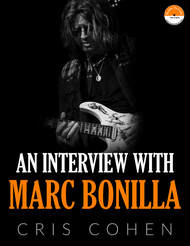
Cris Cohen interviews Dwight Baker of The Wind and The Wave. They discuss:
- How producing other artists has influenced his work with The Wind and The Wave - “I want people to do what’s in their heart… their art.” - The key to supporting Patty’s unique voice - Patty’s different pronunciation of some words in songs - “I want something behind the vocals that’s real” - Patty’s lyrics about friends and family members - Songwriting with different instruments - No cymbals on the first record - Their album “Human Beings Let You Down” - Hearing your song sung back to you from a large audience - The new Missio album he produced - And more Recorded June 17, 2020
Get notified of new interviews! Sign up here...
Cris Cohen interviews Thomas Watson of Rainwater Whiskey. They discuss:
- Bringing energy to quarantine performances - When they made the transition from a cover band to writing their own songs - The influence of a new drummer - The song “Before The End Of The Night” - “Read That Wrong” - His love of singer-songwriters - The embellishments he brings to live vocals - Bounsall guitars Recorded June 16, 2020.
Get interviews delivered right to your email.
Cris Cohen interviews Fred LeBlanc of Cowboy Mouth. They discuss:
- Life is to be enjoyed, not endured - Sometimes songs are (unconsciously) notes to himself - Concerts as a constant creative challenge - Live stream shows and using your imagination - Lessons learned from Dean Martin and Jerry Lewis - Falling off the drum kit while jamming with The Georgia Satellites - Laughing to keep yourself from crying - Why the drums became his primary instrument - “The best music is made when the human spirit is not only trying to express itself, but is trying to free itself” - The children’s book he created - The song “The Avenue” Recorded May 27, 2020
Get interviews delivered right to your email!
Cris Cohen interviews John Easdale of Dramarama. They discuss: - Their album “Color TV” - Stripping out most of the instruments from the recording of “You, You, You” - Being a studio band before being a live band - How starting out as a drummer influenced his songwriting - Covering Elliot Smith and Bob Dylan - The pros and cons of the internet from a musician’s perspective - The rough edges of the Dramarama sound - Listening to country and blues music of the 30s and 40s Recorded May 20, 2020 Cris Cohen interviews Stanton Moore, drummer for Galactic. They discuss: - The live streaming masterclasses he has been doing - How he develops his live drumming presentations - The influence of Allen Toussaint - What Galactic looks for in the singers they work with - Their album “Already Ready Already” - Being an independent, self-sustaining band - Their ownership of and work to preserve the New Orleans club Tipitina’s - “Play every gig like it’s your own wedding.” Recorded May 15, 2020. |
Never miss an interview or eBook release
See the full list of Bands To Fans interviews
Learn how we can develop custom content for your band or business
|
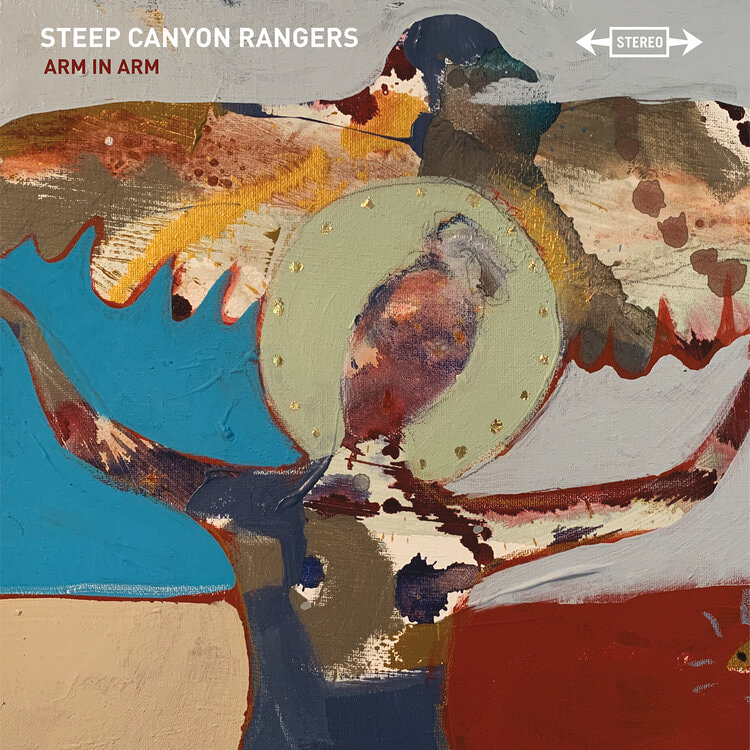
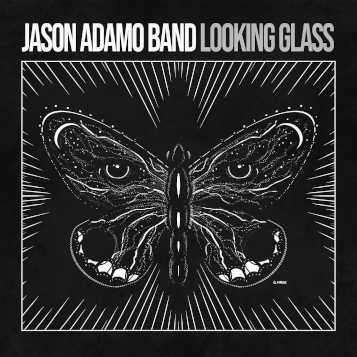
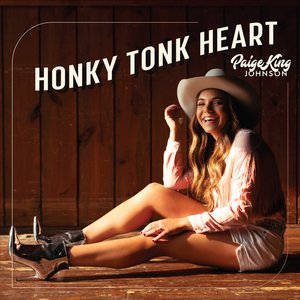
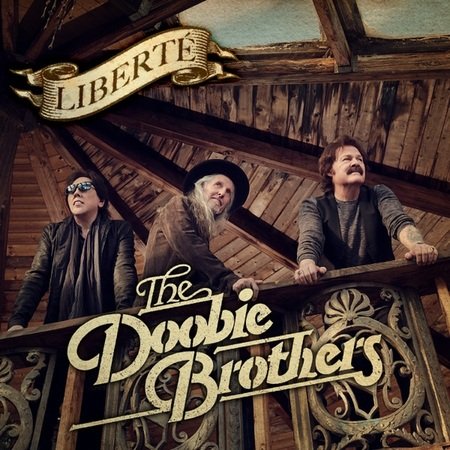
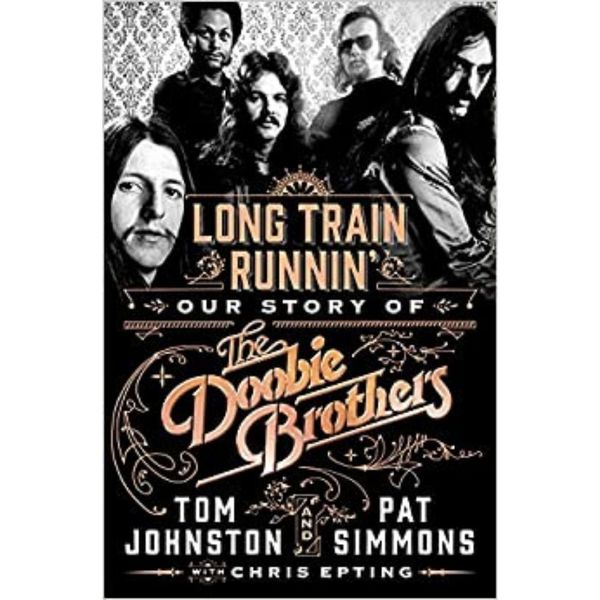
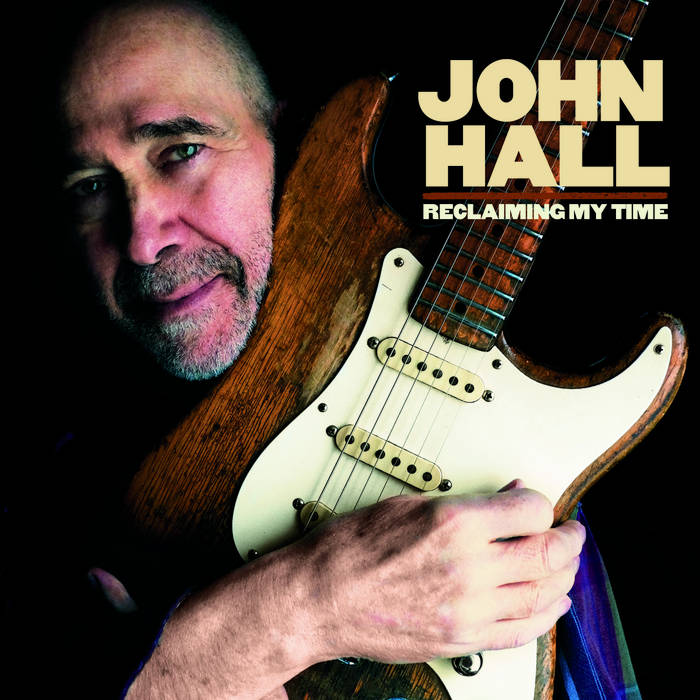
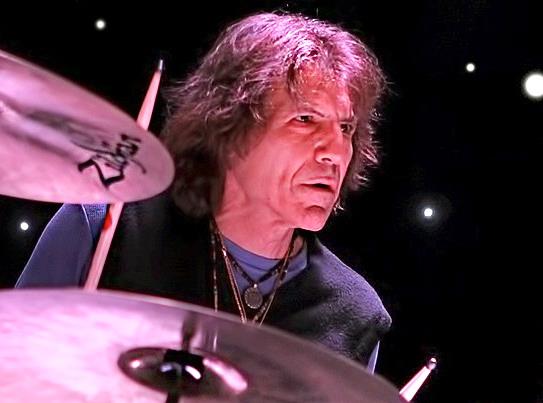
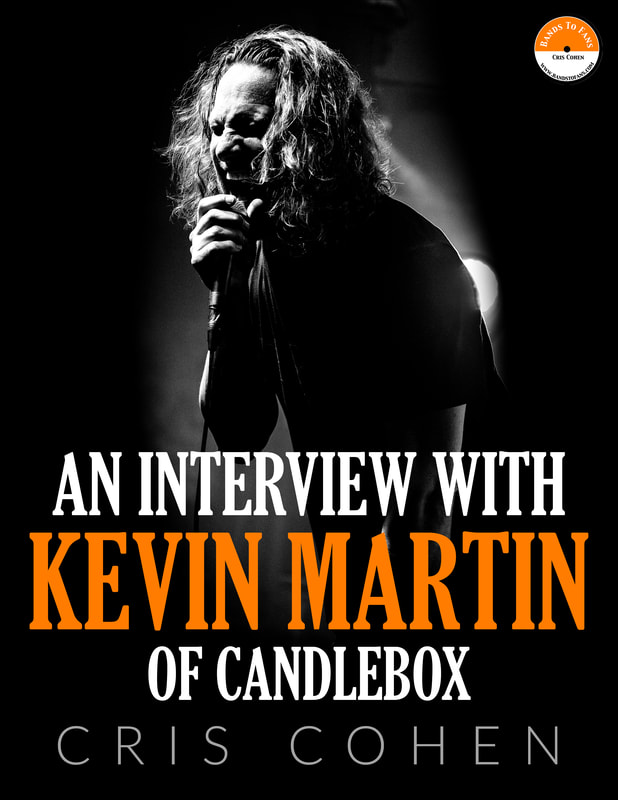
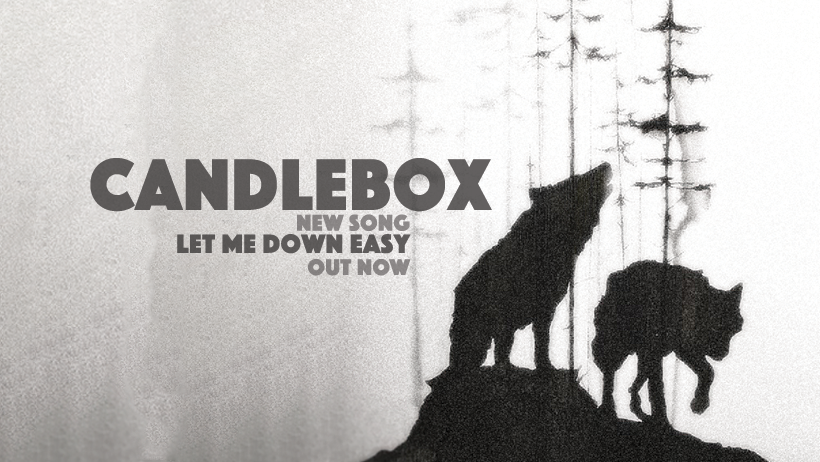
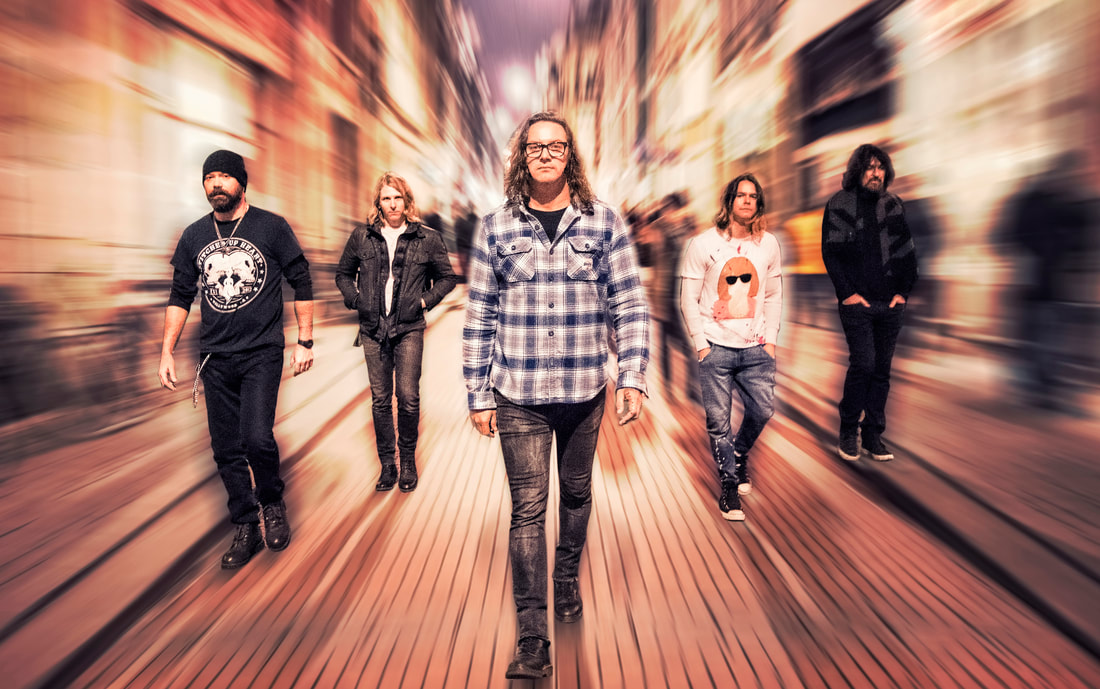
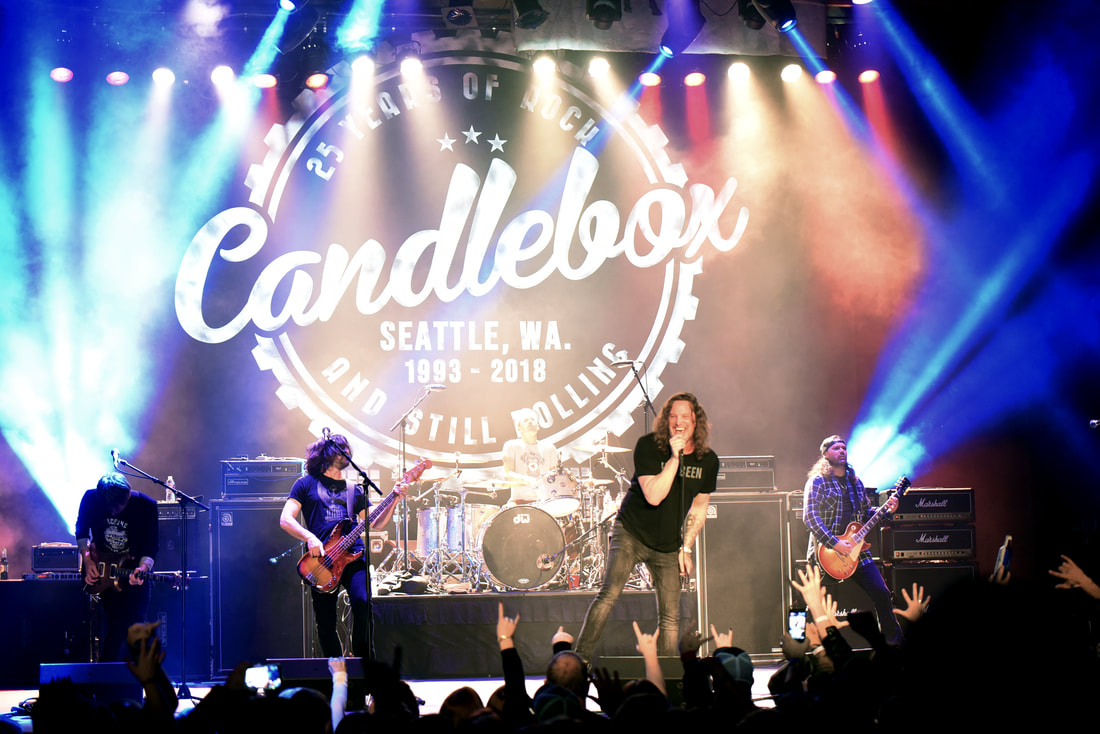
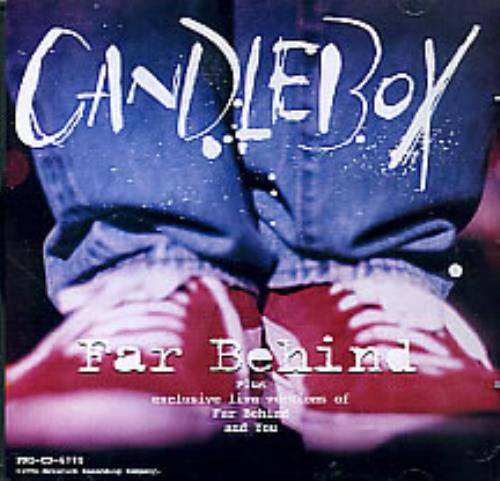
 RSS Feed
RSS Feed